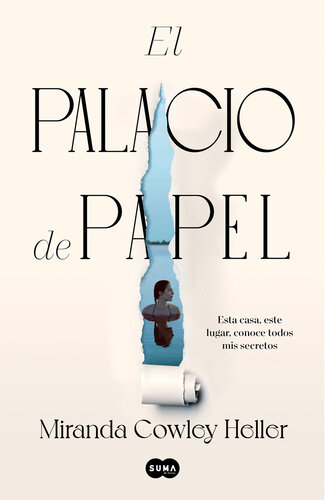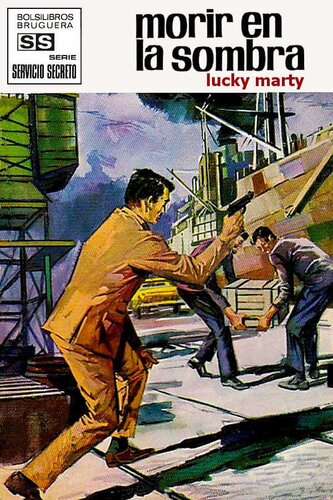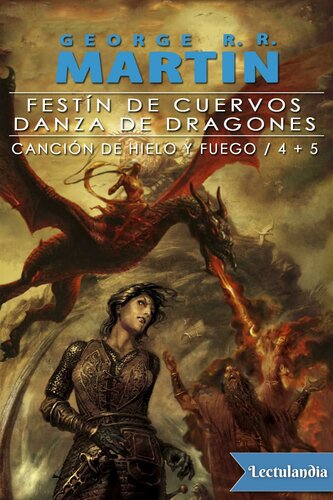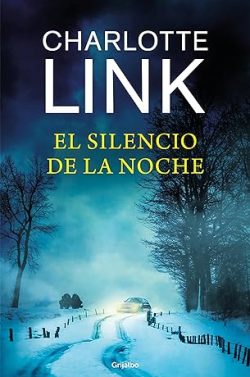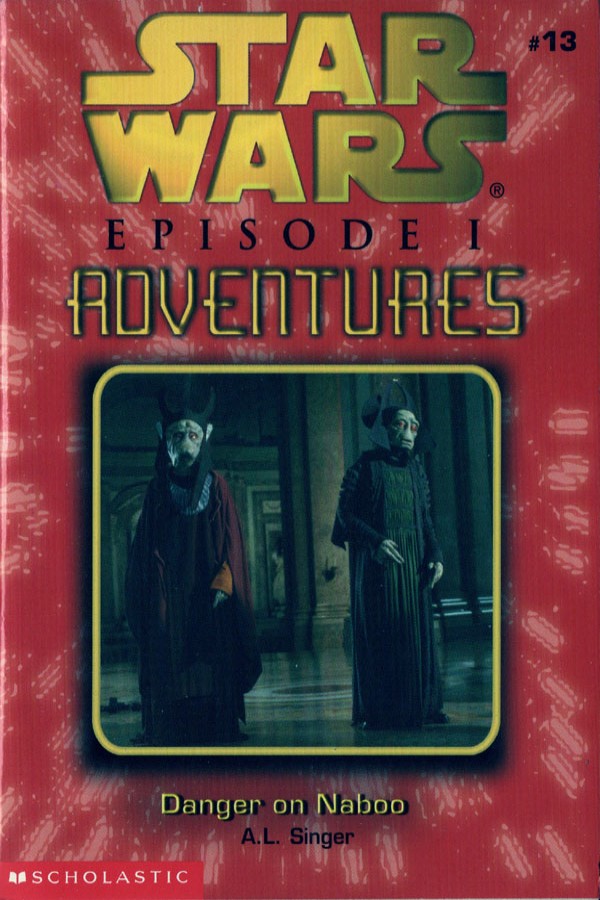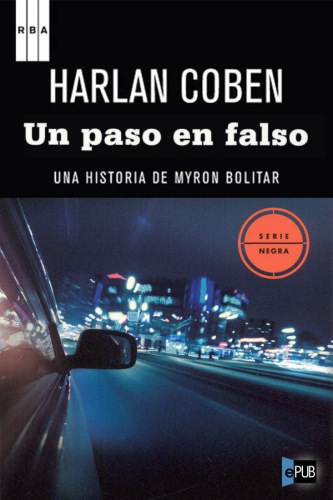oleebook.com
Entre las montanas de Rosina, Lippi
de Rosina, Lippi - Género: Ficcion
Sinopsis
Rosina, Lippi Year: 2010
Descargar
Descargar Entre las montanas ePub GratisLibros Recomendados - Relacionados
Reseñas Varias sobre este libro
A beautifully written book of interconnecting stories through 1909 to 1977.
It follows the women of a close knit community in the remote alpine village of Rosenau.
Their hopes, dreams, secrets and loves.
It opens with a letter addressed to Anna, but who is it really meant for as lots of women were named the same as a family tradition.
I found it to be a very moving book and one that I instantly want to re- read.
This will stay with me for a long time.12 s gaudeo278 56
This is a wonderful collection of stories so tightly intertwined that it is essentially a novel. Each chapter is told from the perspective of a woman in a small Austrian town, beginning in the early 1900s and progressing forward into the 1970s. Each character is so thoroughly developed that I felt a resident of the town (if not a relative) myself. It's a beautiful, lyrical book, and I recommend it highly to anyone who appreciates really good writing. (For the record, my favorite character is Johanna.)10 s Siv302,443 149
?????? ?????? ??????, ????? ????? ??? -
https://sivi-the-avid-reader.com/????...short-stories8 s Veronica794 119
This is a series of slices of life in a remote agricultural community in Austria, covering roughly the first 70 years of the 20th century (with more of a focus on the first half). All are told from the point of view of women in related clans. After all, many of the men are absent, temporarily or permanently, because of war, and the women are left to cope as best they can. My favourite character was Johanna, determinedly independent, and I was glad she played a major role in several stories.
Im having trouble thinking of what to say about it. Theres no real plot, but there is something compelling about seeing lives unfolding in this restricted community. There are dramas and tragedies, but it remains a peaceful read, easy to pick up and put down between stories. I was glad of the family trees in the back, as family ties did get a bit confusing three generations in. Anyway, Im not sorry I read it a solid 3-star read.book-group fiction5 s Chrissie2,811 1,446
NO SPOILERS!!!
This novel is about the relationships between women in a remote Austrian village. It starts before WW1 and continues through the 1970s. The central theme is the women's lives and their relationships to each other, many of which were tied by family bonds: mothers, daughters, grandmothers, cousins, half-sisters and as the years pass great-great-grandchildren. As in any family there are the grumps, the beauties, the intellectuals and each is accepted for what they are. I, the reader, felt as an intruder. I never felt welcome inside the fold. The book made me a bit jealous of what these women could draw from each other. It made me feel lonely and uncomfortable.
It is a novel, although based on true stories the author was told when she spent several years in small western Austrian villages studying dialects. You do not learn much abou specific dialects. Family trees are provided at the back of the book to help you keep track of who is who.
austria hf kirkus5 s Charlotte106
I've read this book four times now over the last several years and love it more each time. Each chapter focuses primarily on a different woman in the same Austrian farming village over a span of 70 or so years of the 20th century, based on true stories the author was told in such villages. Some of the women's stories aren't fully told until they pop up in a future chapter of another woman, often a relative. A moving look into the challenging lives of women (and men) in rural Europe through wars and hardship. This book would be one of the five I would take with me if I was to be exiled on a deserted island. The author, Rosina Lippi, also writes under the name of Sarah Donati and you can find her page here on Goodreads. While her books under the alias are good, Homestead is in a class above. favorites5 s Nancy952 61
Although this was a quick read and I was able to keep track of characters using the clan charts at the back of the book, I feel I never really got a complete storytoo many questions. Who was the mysterious postcard from at the book's beginning? Why did the Wainwright marry Theres after being repulsed by her shameful act? Why does the author kill off Martha? I'd to see more of a story about her and about the romance between her mother and the Italian deserter. Why does Katharina feel the need to leave the village when Stante returns? Is it only because he was castrated or is there more he might tell them that they might not have guessed already? What is the author telling us by the last chapter? That the men never fill the women's needs for romance? That the women are only enduring life? Too many questions.austria award-winner fiction ...more4 s Daisy 1,138 52
I am worried about this, but there's nothing to do but try. Simple and worth remembering.
This is a lovely novel of connected stories that spans from the early 20th century to the late 1970s in a remote valley of western Austria. The women are strong and wistful and tragic and heartening. To me, it's full of beautiful truths.
A farmer's wife is as good as her cheese; her cheese can be no better than her rennet. Many other failings may stay hid throughout the years: she can feed unrisen bread to the sow and cut up the misbegotten needlework for cleaning rags and bury children her womb refuses to nourish in the dark corners of the garden. Her husband will never be the wiser, if she does not tell him. It is easy to feed him in silence, at the kitchen table and even in his own bed: he may suspect, but what can he know?
But there is no place for a woman to hide her cheese.
He will take it from the press to put it before her, and it will tell its own tale: poor of grain, and the rennet was weak; too tough, and the curd was broke too soon; too soft the whey was not pressed clean out; hoven, the curd underworked; dry, too much of the cream skimmed off; studded with a single hair, and there is no excuse or explanation. Our faults--impatience, laziness, greed, sloth--all come to the light in the round disks of pale gold, in the cool damp dimness of the cheese cellar. Where you face your imperfections, with a man as witness who is first a farmer and maybe, sometime else, a husband.
The sexton was in the grave up to his hips. As he worked, briefly displacing those people from their resting place, pausing to stack larger bones neatly by the edge of the hole, I was struck by the thought that those bones and scraps of clothing had been jumbled through by each new burial; every time one of their own came to join them, the dead jostled together not just to make room but to change their view, children scurrying for good seats at the table, wanting to be close to the cookstove or far away from a father's sharp eye, wanting a chance to look out the window into the bright sun or rain or snow.
And suddenly all my anger was gone. I imagined Mama at that table, a young girl again, surrounded by people who welcomed her and were pleased that she had come.
How strange, Lili thought, but she didn't trust Jos enough to say it aloud, not yet: how strange some folks won't rest quiet in their graves and others can turn their backs on the living.
Stopfar: White cornmeal fried in butterfat, eaten from a communal frying pan, usually by dipping each spoonful into a cup of milk or coffee. A common breakfast food but sometimes eaten in the evening also.
That sounds good.aroundtheworld2012 austria mushrooms3 s Rilla46 6
This is a collection of stories revolving around the people, mostly the women, who live in a small rural town in the mountains of western Austria in the early to mid-20th century. Reminiscent of the Kristin Lavransdatter trilogy, the book is full of women's stories, conflict, hopes and dreams. Few leave the small town in their lifetime, but that does not mean they do not have rich and fulfilling lives, some with secrets to keep. 3 s Nati Korn218 28
??? ???. ?????? ??????? ?????? ????? ?????? ?????? ???? ?????? ??? ???? ?????? ???, ???????? ???? ???? ?????? ???? ???? ??? ??? ????? ???? ????, ??? ??????? ????. ???????? ?????? ???, ???????, ????? ?????? ??????, ????? ????? ?????? ???? ????? ??????? ???????? ????? ?? ?????? ??????? ??????? ????? ?????? ?????? ?? ?????, ???????? ???????? ??? ?????? ?????????? ?? ??????. ???? ???? ????? ???? ????????? ??????? ?? ???. ???????? ???? ??????? ????? ??? ?????? ?????? ??? ?? ???? ????? ????? ??? ??? ???? ?? ????? ???? ??????? ??? ????????? ?? ?????? ???, ????, ????? ?????? ?????.american-literature austrian-literature2 s Mela1,670 220
"And then they will all be there, waiting for me, and when I am ready to come to them they will have embraced each other and merged into one woman who is mother and sister and aunt and daughter. And I will not have to choose between them."
This beautiful book is this quote from it. Deep, tender, affectionate. About being a woman, mother, sister, aunt, daughter, being self.
There are twelve chapters. Each is about a different time and from a different point of view (through the eyes of different women), but all characters belong to three families live in a small county (a village). Each story is meaningful and remarkable. Each one has something important to tell.
I value especially five stories/chapters which squeezed my heart hard:
story of Johanna (1916, love for sister, for man, for self, about sacrifice and loss, about the cruelty of war),
story of Isabella (1917, love for own children, about loss and the cruelty of war),
story of Wainwright's Katharina (1938, about being young, about feeling, at the same time, worse and better than others, again about the cruelty of war - this time WWII),
story about Mikatrin (1943, about the loss of a husband and a child, about second chance for happiness, how hard it is to let self to be happy after a big pain and grief, about love for sister)
and story of Olga (1946, about the loss, about grief and living despite and with grief, about longing).
It all sounds sad. The book is sad but there is some kind of consolation. We all live our own lives. There is sadness but there is also happiness. And we all are part of a something bigger, community, family, humanity. When we learn to accept what we have, who we are, we will be much happier.1945-1990s greatly-touching historical-fiction ...more2 s Ruth68 4
A quiet book about quiet lives in a secluded alpine village in Austria. Despite the seclusion the lives are rich and full, the characters memorable, and outside events shape experience - the world wars bringing change of various sorts to lives traditionally spent in farming and cheese making. It is the women's lives that are portrayed, with interlinking stories that take us from the early twentieth century to the seventies. Their lives are circumscribed by their domestic and farming duties; their loves, disappointments and hopes informed by traditions and family, and sometimes frustration with quiet ways. These experiences feel authentic and fresh-minted, a whole world of experience different from the clamour of modern times, and yet in many respects just the same. A triumph of story telling.2 s G. LawrenceAuthor 29 books228
Gorgeous, really a wonderful read.
Started out not liking it particularly, and seeing it very much as a loosely connected set of short stories about the lives of women in a remote, rural community over years. In the beginning I felt not very interested and slightly annoyed with the short pit stops through time, but by the middle I was hooked, and by the end, I was in love.
Touching, beautiful, rather a melancholy tome, but strangely captivating, this is a beautiful book. Make sure you keep reading, it is worth your time 2 s Ruth106
I almost gave this book five stars as it has left an impression on me. After reading the stories I felt I had grown to know the families over the generations. Lippi cleverly weaves the inter-connected tales in chronological order and thankfully gives a family tree at the front of the book. As I was finishing this book in the Swiss Alps it has helped to enrich my experience of life in the mountains especially as I walked up to some of the remote hamlets in winter.2 s Allie Riley471 191
Wonderful. And yet somehow, not enough. I want to know more about all of these people. It works perfectly and yet could also be several other novels. I hope that she writes more about these characters.2 s Miriam109
Prachtig!eigendom2 s Chrystyna Lucyk-BergerAuthor 17 books203
I read this book while first visiting Vorarlberg, Austria. The prose is stunning, the portrayals vivid and poignant and Lippi / Donati has captured the culture and the tone of the Bregenzerwald. I read this in 2002 or 2003, then again in 2012, and AGAIN just recently. I can count on one hand the number of books I have re-read.1 Christine15 1 follower
This, Im sure was better on the radio. I found it a bit confusing at times. A second reading might explain a lot more.1 Anne-Michelle79 13
This story was beautifully written, but I really expected more out of it. It was a series of short stories about various women from the same village who are all somehow related. It had the potential to be very juicy, but there were so many people involved that it was hard to keep track of their stories. The mystery behind many of the stories was lost. (Too bad I didn't read the Table of Contents first to see that the family trees were charted in the back of the book! Argh.) I enjoyed the first half of the book, but the end didn't do much for me. It could have been so much better.fiction1 Michelegg1,130 122
This wasn't a book I would have ever chosen on my own, to read (I read it with my bookclub). It was confusing, hard to keep the characters straight. But I actually wound up enjoying it. Ms. Lippi has a writing style I so enjoy. She writes beautifully. I loved the words of the book. It was a beautiful book, full of wonderful characters.1 Bachyboy561 10
Set in the Austrian alps and spanning from 1909 to the 1970s, this is a wonderful look into the lives of three families. It traces their passions, loves, losses and hardships over the years - their lives are governed by the cycles of farming and the seasons. Multiple characters made the family trees at the beginning of the book very useful.1 Jan Vanderburg83
I loved this book! The author spent four years in Austria as a linguist and became intrigued by the interconnected lives and stories of the community. This is a novel of a
wonderful collection of stories as seen mainly through the eyes of the women over 80 years. 1 Melinda Christensen703
First I wish to say that I didn't read the clan charts (geneologies) in the back of the book until the end, and it would have been easier to understand how everyone was related if I had. However, soon enough the characters became familiar to me, almost as if I were reading about my own family history in the U.S.A. My families were mostly farmers, similar to these people. As I read, it felt I was reminiscing my own past, so it became dear to me.
The author, Rosini Lippi, spent four years in Austria's westernmost province where "Homestead" takes place. It is the depiction of a community written in twelve related chapters, which spans roughly from the years 1909 to 1977. The Alpine village is called Rosenau. The stories are based on true examples women from the area have shared with the author for the past twenty years. It is compelling that the stories center on women; where men are mentioned as husbands and clan members, they take a backseat role. This could be due to the fact that two World Wars took the men away and they often didn't return leaving the women to milk the cows and goats, make cheese, bring in the hay, tend the animals, keep up the homesteads, and raise their children. Of course, in a tiny village everyone knew their neighbors' business, so there were scandals, but for the most part people helped one another.
After all, most of the residents were related one way or another!austria based-on-true-story families ...more Claudia Majetich305 2
This is almost a unique book: the only book that comes close to it in my reading is Pig Earth. Both deal with rural communities that have ways of interacting that don't quite match current, metropolitan habits.
The small group of people who live in a somewhat isolated village in the Austrian Alps are probably to remarkable in the overall history of humanity. They work at raising farm animals, and substance crops. They deal with the neighbors faults and appealing traits. They support one another, even if the person in need isn't particularly likable.
The folks who live in this village are well aware of a larger society, made excruciatingly clear by the number of young men who are drafted and killed during World War 1. The larger world has a pull for some people, but not many feel the need to go beyond their village life. In fact, the ending reinforces the pull that the home village has.
I could not help but wonder if this was somewhat the lives of all my grandparents in their respective rural settings in Eastern and Southeastern Europe. They and many of their siblings and cousins chose to leave, though, which is something that doesn't seem to enter into the thoughts of these people.
A lovely book, reaffirming much that is good about humanity. Nick Schroeder69 6
A novel or a book of linked stories? It doesn't really matter as this is a book showing the richness and drudgery of daily life and the passing of the seasons and the years. A wonderful showing of lives of several generations of women in a remote valley of Austria from 1909 to 1977. A book that reminds you that you never completely know another person. A book of practical and pragmatic people, yet people who do pause from their work and look up and around them and enjoy the marvel of the mountains that surround them and the small delights of daily life. A book of the interwoven and interwoven relationships of people and that shows that even the "simple life" far from the big city is intricate and complex.
DO READ the "Clan Charts" and other appendices at the end of the book before you start the stories. to-be-reread Janice Shull88
Lippi won the Pen/Hemingway Award for this collection of linked stories, an honor well bestowed on this beautifully written work of fiction. The stories are set in the village of Rosenau, high in the Bregenz Forest of Vorarlberg. Spanning eighty years of village life, the narrative reveals first one womans secrets and then another, the incidents of one era bringing repercussions in another. Lippi chooses just the right details of life in the mountains to portray a community always tested by its place in time. Yet the conflicts of these unknown women will be recognized by every reader as universal and true as life itself. The author has provided clan charts, a pronunciation guide and a glossary at the back of the book, and the reader is advised to consult these helpful tools for a fuller comprehension of the complex dialect and family relationships portrayed. Morgan165
Refreshing! Viscerally feminine. Too often, even women writers do not convince me their female characters are indeed women. In this novel, which is really a collection of short stories hanging from the branches of three family trees, the depth of a woman's soul shines through each woman's eyes and echoes from her beating heart into the snoring darkness illuminating the distinction between head, heart and gut intelligence. It is about women together in community, about the ties that bind women in family all the while exuding the musty scent of the bloody intimacy of female solitude. In its reading, I recognized my soul and myself. Wrapped in in Lippi's warm well-patinated stories, as a reader, I found myself in my own arms grateful for having been born female, happy to be in a woman's body living a woman's life. A true gift. Thank you, Rosina. Susan192
This is a beautiful gem of a book, organised as a chronological string of stories across several generations in a remote Australian village. The first story is deceptively simple and clever - a sweet tale of how a misdelivered postcard prompts an internal review of the first character's life. Even though we know two world wars are coming around the bend, the way these events intersect with the inhabitants of the village is still shocking and unsettling. Although the stories span over 60 years, while there is change there is also much that remains the same; this is true for the daily patterns of life in a farming village, for the internal yearnings of the characters and for the tightly-woven relationships amongst the various families. A delightful read. Challice585 67
Austrian homesteading? Yes please! I think this book had the potential of being a great read but it felt really disconnected. I read it in one sitting, and I'm glad I did because I think I would have been too confused otherwise. The idea is to follow generations of Austrian homesteaders. From a bitter postmistress to a dairy farmer's daughter to a amputated man that married the sister instead, each story is told through a character's eyes, sometimes in the first person, and this is where I think it got a bit too much. The timeline expanded from just before WW1 all the way to 1970s. As I said, it felt it had potential to be really good but it just felt a disconnected and not well wrapped up. Virginia Pulver259 26
Autor del comentario:
=================================

